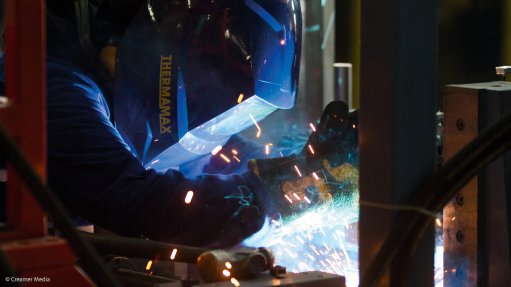
Photo by: Creamer Media
The Steel and Engineering Industries Federation of Southern Africa (Seifsa) is calling on government to take urgent and decisive action to support the domestic steel sector following ArcelorMittal South Africa’s (AMSA’s) announcement that it intends winding down its long-products business.
In a statement, Seifsa warned of potentially dire economic and employment consequences should AMSA’s Newcastle, Vereeniging and Emalahleni operations close, including the loss of up to 25 000 jobs in the steel value chain.
In a surprise announcement on November 28, AMSA indicated that 3 500 direct jobs were potentially at risk, including contractor jobs, should the longs operations be shut as intended.
“The long-steel products that are at risk feed into construction, heavy engineering, railways, the automotive sector, fasteners manufacturing, the mining sector and the structural steel sections required for the electricity transmission sector,” Seifsa highlighted.
“The reach is vast, the consequences dire and the cost immeasurable.”
Seifsa stressed that several downstream steel companies were dependent on long-steel products produced by AMSA, and noted that the automotive sector was already warning of adverse local-content implications.
“Logistics costs, including longer lead times and exchange-rate provisioning, are likely to add anything between 20% to 30% to the cost base and the domestic logistics challenges will only serve to compound onto this, rendering domestic manufacturing uncompetitive and infusing higher costs into the economy.”
Seifsa called for “bold reforms” at a national and localised level to prevent these scenarios from playing out.
“All options, including Negotiated Price Agreements for electricity, special dispensation and dedicated rail capacity and a levelling of the playing field with regard to the uplifting of the scrap-metal ban and in the long-term exploring options for preferential pricing on iron-ore, amongst others, should be tabled and critically explored in a rational and collaborative fashion.
“Not to do so, would at best be irresponsible and at worse amount to economic suicide.”
The federation, which represents 18 employer associations in the metals and engineering industries, with a combined membership of 1 300 companies that collectively employ about 170 000 people, said it stood ready to work with government “in averting an economic disaster of unimaginable proportions”.